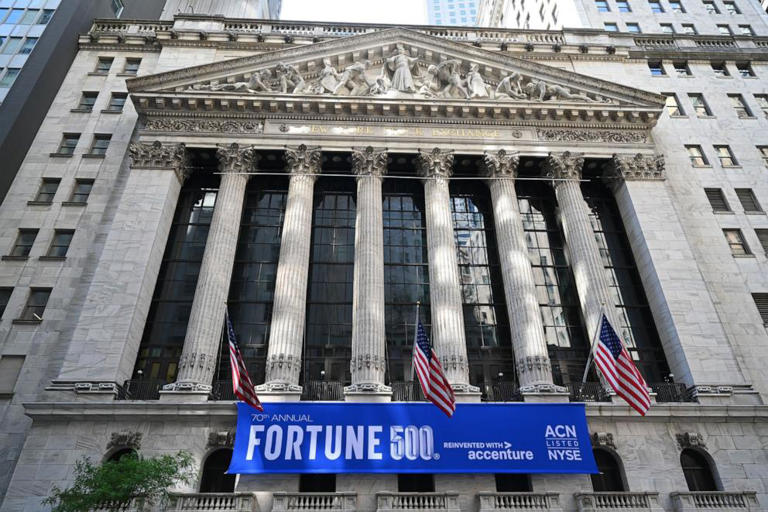Prominent investors have poured billions into a new Texas-based stock exchange aiming to attract companies with what it considers more business-friendly rules than those of the New York Stock Exchange (NYSE) and the Nasdaq. The Texas Stock Exchange (TXSE), supported by influential market entities like Citadel Securities and BlackRock, plans to submit filing documents to the Securities and Exchange Commission (SEC) later this year, according to a statement from TXSE Group, the company behind the exchange.
Background and Funding
The Texas Stock Exchange (TXSE), headquartered in Dallas, will be a fully electronic, national exchange that allows companies to list and trade their stocks. The exchange also plans to offer exchange-traded products, which are growing in popularity as they allow investors to bet on a basket of assets. An example would be an exchange-traded bitcoin fund, enabling clients to invest in bitcoin without holding the underlying cryptocurrency.
The TXSE has garnered support from more than two dozen investors who have collectively invested over $120 billion. This significant financial backing underscores the strong interest in establishing a new trading venue that addresses the concerns of businesses dissatisfied with the existing exchanges’ stringent listing standards and high compliance costs.
Attracting Businesses Through Different Rules
The TXSE aims to attract companies frustrated by the stringent listing standards and increasing costs imposed by established exchanges like Nasdaq. For instance, Nasdaq has recently implemented rules that set targets for board diversity, which some companies find restrictive and costly. The TXSE promises more flexible listing requirements and lower compliance costs, positioning itself as a more business-friendly alternative.
James Lee, founder and CEO of TXSE Group, emphasized the demand from investors and corporations for expanded alternatives to trade and list equities. He stated that this is an opportune time to build a major national stock exchange in Texas, capitalizing on the dissatisfaction some companies feel towards the current regulatory environment of existing exchanges.
The Potential Political Angle
The launch of the TXSE coincides with a broader conservative backlash against what some view as “woke capitalism,” which includes climate-friendly business practices and diversity, equity, and inclusion (DEI) policies. This timing has led to speculation about the exchange’s potential political leanings.
Analysts are divided on whether the TXSE will serve as an alternative for conservative-leaning companies. Some experts believe that the exchange’s appeal may include an “anti-woke” branding, making it attractive to businesses critical of sustainability and DEI regulations. Larry Tabb, head of market structure research at Bloomberg Intelligence, noted that Texas sends a clear message: “If you’re anti-woke, come here.”
However, TXSE Group has stated that the exchange is apolitical. Christine Parlour, professor of finance and accounting at the University of California, Berkeley Haas School of Business, suggested that most prospective clients are primarily focused on liquidity rather than political considerations. She emphasized that all exchanges are ultimately driven by profit, and financial considerations will guide their decisions.
The Role of Branding and Liquidity
As technological advancements have taken stock exchanges online and reduced the baseline cost of providing high-quality services, exchanges have increasingly relied on listing rules, branding, and liquidity to differentiate themselves. Tabb highlighted that companies listed on the NYSE or Nasdaq benefit from the credibility and visibility associated with those established exchanges, such as the iconic bell-ringing ceremonies and the high-profile locations in New York.
In contrast, the Texas Stock Exchange might attract companies that align with its business-friendly approach, such as energy firms or companies like Tesla. However, Tabb cautioned that not all companies may want to be associated with a platform perceived as being on the “outer edge of the culture war.”
Economic and Cultural Impact
The establishment of the TXSE could signal a broader shift in corporate America, as more companies relocate to Texas, drawn by its favorable business environment. Texas is already home to more Fortune 500 companies than any other state, and the new exchange could further enhance its appeal to businesses.
The TXSE represents an attempt to create a trading venue that addresses the frustrations of companies with the current regulatory environment. By offering more flexible listing standards and lower compliance costs, the TXSE aims to provide a compelling alternative to the established exchanges. This could potentially lead to a rebalancing of corporate listings and trading activity in the US market.
Conclusion
The Texas Stock Exchange represents a significant development in the landscape of US stock exchanges, with substantial backing from prominent investors and the promise of more business-friendly rules. While its potential political implications are debated, the primary appeal of the TXSE lies in its flexible listing standards and reduced compliance costs. As the exchange prepares to file with the SEC, it remains to be seen how it will reshape the dynamics of corporate listings and trading in the US market.
The introduction of the TXSE could have far-reaching implications, not only for the companies that choose to list there but also for the broader economic and cultural landscape of corporate America. Whether the TXSE becomes a haven for conservative-leaning companies or simply a more accommodating venue for businesses of all stripes, its impact will be closely watched by industry observers and participants alike.
